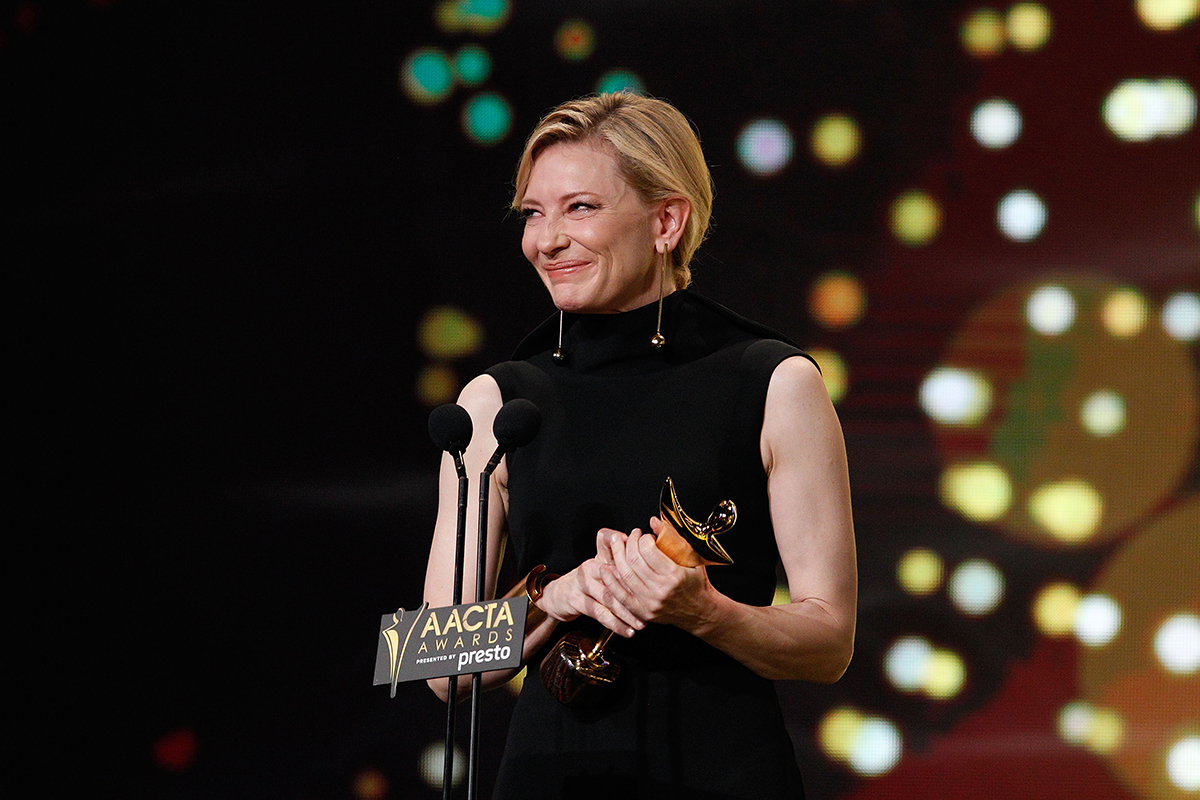The times they are a-changin’
An overwhelming wave of positivity has met Screen Australia’s Gender Matters initiatives, but as many acknowledge, these are just the first steps.
 Cate Blanchett accepting her Lyell Longford Award at the 2015 AACTAs
Cate Blanchett accepting her Lyell Longford Award at the 2015 AACTAs
Amongst the glitz and drama of the 5th AACTA Awards, one of the trends evident from those who took home gongs, is that Australians love stories by, and about, women.
Mad Max: Fury Road – Dr George Miller’s thrilling action flick with a feminist twist – scooped up a total of eight nods across the award categories, including Best Film. And The Dressmaker, another box office hit with a female story front and centre, dominated the film acting awards as well as winning the inaugural People’s Choice award.
And who could forget Cate Blanchett taking the stage, as she accepted the newly titled Raymond Lyell Award – the eighth woman to receive it since it was established in 1968. Previously called the Raymond Longford award, the name was expanded to recognise Lottie Lyell’s contributions to the Australian film industry.
“So often in any industry, the film industry is no exception, female achievement, because we just get on and do stuff, we get swept under the carpet,” Blanchett said in her emotionally-charged speech.
“I think it’s fantastic that AACTA are coming into the 21st century and so it’s a particular pleasure for me to receive this.”
This all comes just days after Screen Australia’s announcement of Gender Matters – a $5 million suite of initiatives to try and combat gender inequality behind and on camera by the end of 2018.
The vast majority of responses have been positive.
Producer and publicist Jess Carrera is one fifth of Dollhouse Pictures – a collective of five female filmmakers, including Rose Byrne and Gracie Otto – and says this push toward gender equality is thrilling.
“I‘ve worked in the industry for such a long time and I know so many women in front of and behind the camera, so it’s nice to see that there’s support behind them, and support to develop more of them,” she says.
Carrera pointed to a recent email from a filmmaker they are working with, who said four out of five of the camera crew on her short film are women.
“There needs to be more of that. And it needs to not be special or rare, it needs to just be fact,” Carrera says, adding that the success of The Dressmaker is testament to the fact that audiences want more female stories and projects led by women.
Others praising Screen Australia’s steps toward change include The Great Gatsby actor Elizabeth Debicki, who “fully supports” the move.
“I think we have a long way to go, but we’re getting somewhere. Initiatives like that are so important, because they just sort of put a banner on an issue that people need to think about more,” Debicki said on the AACTA Awards red carpet.
Joining her optimism on the red carpet were actors including Magda Szubanski, Radha Mitchell, Claudia Karvan, Georgie Parker and Brooke Satchwell.
Szubanski said tackling any kind of issue in terms of diversity, including gender equity, was enormously important.
“Especially with a small industry you can’t afford to be alienating any one sector and hopefully worldwide, people are going to start realising women are an enormous market and to neglect that market is just foolish,” she said.
Karvan agreed.
“Any initiative that is promoting diversity and storytellers, whether it be from gender or race, should be applauded absolutely,” she said.
“That’s what we need for a vital and vibrant industry. We have to have a variety of voices.”

What to read next
Gender Matters aimed to create a surge of female stories through Brilliant Stories, but how do you ensure long-lasting change? Enter: Brilliant Careers.
12 Jul 2016
Caris Bizzaca